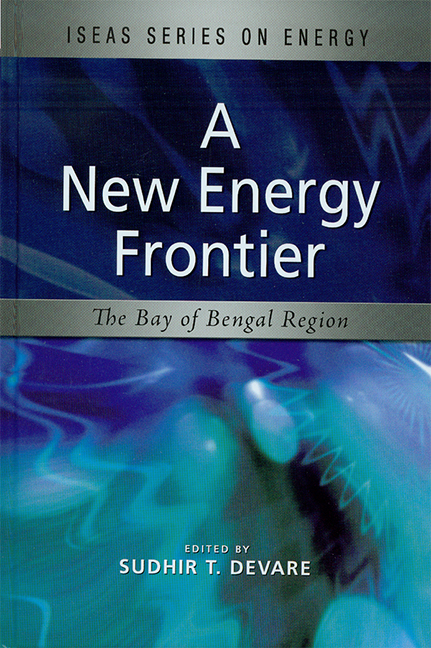Book contents
- Frontmatter
- Content
- Foreword
- Message from the Director
- Preface
- The Contributors
- 1 An Overview of the Energy Scene in the Bay of Bengal Region
- 2 Current and Expected Energy Production and Consumption within the Bay of Bengal Region: A Synopsis
- 3 Gas Potential at the Bay of Bengal and Implications for India's Energy Security
- 4 Macroeconomic Challenges for the Growth of the Energy Sector in Bangladesh in the Context of Regional Integration
- 5 Energy in the Bay of Bengal Region: Myanmar's Perspective
- 6 Marine-related Energy Resources in the Eastern Indian Ocean: Indonesian Perspective
- 7 Energy Trading and Singapore's Role as a Hub
- 8 Bay of Bengal: Awakening of a Potential Giant Area
- 9 Energy Transportation Security in the Bay of Bengal
- 10 Ethical Business Practice or Camouflage? Energy and Mining Companies and Corporate Social Responsibility
- 11 Sustainable and Renewable Energy: Scenarios for the Future
- Index
9 - Energy Transportation Security in the Bay of Bengal
Published online by Cambridge University Press: 21 October 2015
- Frontmatter
- Content
- Foreword
- Message from the Director
- Preface
- The Contributors
- 1 An Overview of the Energy Scene in the Bay of Bengal Region
- 2 Current and Expected Energy Production and Consumption within the Bay of Bengal Region: A Synopsis
- 3 Gas Potential at the Bay of Bengal and Implications for India's Energy Security
- 4 Macroeconomic Challenges for the Growth of the Energy Sector in Bangladesh in the Context of Regional Integration
- 5 Energy in the Bay of Bengal Region: Myanmar's Perspective
- 6 Marine-related Energy Resources in the Eastern Indian Ocean: Indonesian Perspective
- 7 Energy Trading and Singapore's Role as a Hub
- 8 Bay of Bengal: Awakening of a Potential Giant Area
- 9 Energy Transportation Security in the Bay of Bengal
- 10 Ethical Business Practice or Camouflage? Energy and Mining Companies and Corporate Social Responsibility
- 11 Sustainable and Renewable Energy: Scenarios for the Future
- Index
Summary
“One of the main causes for our enemies' gaining hegemony over our country is their stealing our oil; therefore, you should make every effort in your power to stop the greatest theft in history of the natural resources of both present and future generations, which is being carried out through collaboration between foreigners and [native] agents …. Focus your operations on it [oil production], especially in Iraq and the Gulf area, since this [lack of oil] will cause them to die off [on their own].”
Osama bin Laden Audiotape December 2004“Our brothers in the battlefields to direct some of their great efforts towards the oil wells and the pipelines.”
On an Islamist website, translated by the IAGSPost 9/11, the traditional concept of safety of maritime transportation system has changed. The threats at sea arising from terrorism and piracy have assumed significance in view of the determined bids by Jihaditerrorists to engage both military and civil targets by using suicide terrorist tactics. In terms of maritime security, attacks on U.S.S. Coleand French tankerM.V. Limburghave exposed the vulnerability of both warships and merchant shipping. Importantly, the latter attack has highlighted the possibility of terrorists engaging in such attacks to create a long-term slowdown of maritime commerce leading to economic disasters.
There are fears that an LNG (liquefied natural gas) tanker exploding in a seaport could be as devastating as the 9/11 attack in the United States. A VLCC (Very Large Crude Carrier) or a LNG tanker could be rammed into a major port or a large bomb could be set off by a suicide bomber or via remote control on board a large cruise ship. Terrorism experts believe that terrorist groups are obtaining specific maritime skills, thereby increasing their capability of launching more complex operations. Such fears about the attacks have forced the states to initiate several initiatives to provide greater protection to maritime infrastructure and maritime supply chains.
Energy infrastructure is an attractive target that can be devastated or destroyed with relative ease.
- Type
- Chapter
- Information
- A New Energy FrontierThe Bay of Bengal Region, pp. 148 - 167Publisher: ISEAS–Yusof Ishak InstitutePrint publication year: 2008



